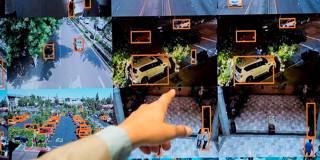Artificial intelligence is a perfect example of a “post-normal” scientific puzzle, defined by empirical uncertainty, conflicting values, high stakes, and urgency. For these challenges policy cannot afford to wait for science to catch up.
FLORENCE – For policymakers anywhere, the best way to make decisions is to base them on evidence, however imperfect the available data may be. But what should leaders do when facts are scarce or non-existent? That is the quandary facing those who must grapple with the fallout of “advanced predictive algorithms” – the binary building blocks of machine learning and artificial intelligence (AI).

FLORENCE – For policymakers anywhere, the best way to make decisions is to base them on evidence, however imperfect the available data may be. But what should leaders do when facts are scarce or non-existent? That is the quandary facing those who must grapple with the fallout of “advanced predictive algorithms” – the binary building blocks of machine learning and artificial intelligence (AI).